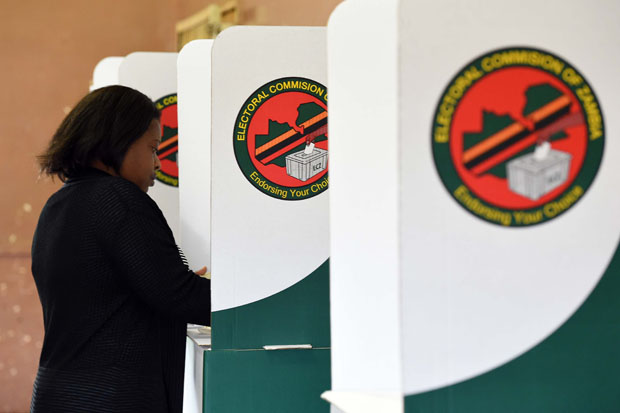From being one of Africa’s most stable republics, a place so functional that it rarely used to make international headlines, democracy in Zambia is taking a hit. In the run-up to general elections on August 12, Zambia is currently being branded a totalitarian state under the leadership of President Edgar Lungu.
With little time remaining ahead of the polls, the southern African country is facing a year of historic political upheaval following economic shocks due to a national debt crisis that has affected inflation; high unemployment, high cost of living and deep-rooted political intolerance have acutely affected Zambia’s socio-economic governance.
Recently, the ruling party – the Patriotic Front – managed to enact the ‘controversial’ Cyber Security Bill, which is allegedly to curtail divergent views. In addition, police brutality against members of the opposition political parties is a daily exploit. Lack of press freedom has also led to critical media outlets being closed down, abuse of state institutions and the unfair application of the Public Order Act are all being enforced prior to this years’ polls.
As the Lungu-led administration battles for re-election, an unprecedented breakdown in the rule of law and victimization of opposition political party members who are being detained on tramped-up charges for months without trial has been met with sharp reactions from a cross section of society.
The hotly contested election campaign has featured several decrees and incidents which, according to the opposition, violate democratic principles with some opposition members barred from participating in campaigns while others are still behind bars, although the constitution requires a court hearing within 48 hours.
Critics note the police crackdown on opposition rallies, wanton arrests and the unfair application of the Public Order Act as well as the recent ban on campaign rallies
Lungu’s main opponent is Hakainde Hichilema, head of the United Party for National Development (UPND). He narrowly lost the 2016 election and is seen as a political threat by the ruling party in the event that he emerges winner in the upcoming polls. Hichilema has run unsuccessfully five times before, but this time has formed alliances with other parties that threaten to unseat the ruling Patriotic Front.
Zambians will be voting in presidential, parliamentary and local government elections. There are 16 presidential candidates, with Lungu and Hichilema the main contenders.
One of Hichilema’s aides, Mubita Nawa, is among other opposition political members who were recently arrested and held longer than the period allowed under the constitution. After two weeks in detention on a charge of defaming the president, Nawa was denied bail while the charges are being reviewed by state prosecutors.
As the political ‘witch-hunt’ heightens ahead of the polls, Zambia’s Ambassador to Ethiopia and Permanent Representative to the African Union, Emmanuel Mwamba, recently reported University of Zambia Lecturer, Dr. Sishuwa Sishuwa, to the Police for writing and publishing seditious material.
Critics note the police crackdown on opposition rallies, wanton arrests and the unfair application of the Public Order Act as well as the recent ban on campaign rallies with impunity, on the grounds that they risk spreading the Covid-19 virus.
Leader of the Patriots for Economic Progress, Sean Tembo, one of the 12 aspiring presidential candidates eyeing the top job, has lashed out at the head of state and urged him that instead of wasting his energy intimidating political opponents using Covid-19 regulations, President Lungu should spend his remaining few days in office apologizing to the Zambian people for grossly mismanaging the country for the past six years.
As political tension mounts amid the campaign period, some political analysts have predicted that the notable dictatorial conduct being perpetrated by the PF regime will negatively affect the delivery of free and fair elections.
With a deteriorating human rights record, Amnesty International in its 2021 Report affirmed that Zambia’s years of intensifying repression have pushed the country to the brink of a human rights crisis ahead of August’s presidential elections.
In its latest report, titled “Ruling by fear and repression”, the organization details how the rights to freedom of expression and peaceful assembly have come under increasing attack particularly over the past five years, with opposition leaders and activists jailed, independent media outlets shut down, and at least five people killed by police since 2016.
Zambia, Africa’s number two copper producer, is further grappling with an economic crisis after it failed to make payment of a coupon on one of its dollar bonds in November, dragging it into sovereign default.
Image credit: GovernmentZA

